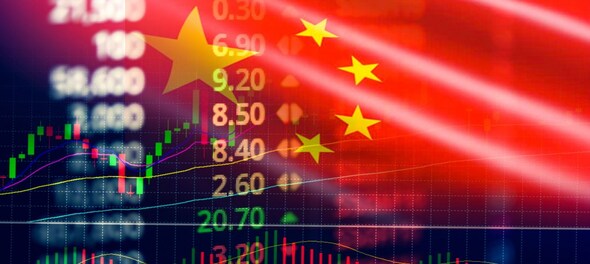
Evergrande is scrambling to repay $305 billion to lenders, suppliers and investors due to a cash crunch. The Chinese property giant is on the brink of collapse and this could have implications beyond China’s borders, warn analysts.
“Evergrande’s collapse would be the biggest test that China’s financial system has faced in years,” Mark Williams, Chief Asia Economist at Capital Economics, told CNBC.
What is Evergrande?
Founded in Guangzhou in 1996 by Chinese billionaire Xu Jiayin, Evergrande is one of the biggest real estate developers in China. The company made its name in building residential property. Currently, it owns more than 1,300 projects in over 280 cities across China, according to its corporate website. It later diversified into electric vehicles, sports and theme parks, food and beverage business, bottled water, groceries, and dairy products. The company employs around 200,000 people and generates more than 3.8 million jobs each year, the website says.
In 2010, the company bought the Guangzhou Evergrande soccer team, which has built the world's biggest soccer school at a cost of $185 million. At present, the company is working on building a lotus-flower shaped soccer stadium at an investment of $1.7 billion with a seating capacity for 100,000.
A Fortune Global 500 group enterprise, Evergrande is listed in Hong Kong. The real estate giant reported $110 billion in sales last year.
What is the problem now?
Evergrande's debts rose when the company borrowed to finance its other projects. It also sold apartments at a faster rate even with low margins with the hope to raise cash and buy land again.
Last year in September, a leaked letter allegedly from the company, seeking support from the government for a listing plan, sparked concerns among investors. The company denied having written such a letter.
On the request of Guangfa Bank, a Chinese court froze a bank deposit worth $20 million held by the firm in July.
Debt value
Evergrande's interest-bearing debt stood at 571.8 billion yuan ($89 billion) at the end of June, according to the company’s interim report. It was 716.5 billion yuan at the end of 2020. Its total liability stood at 1.97 trillion yuan, accounting for about 2 percent of the country's GDP.
The company has been criticised for borrowing from trusts, wealth management products and commercial papers.
It stepped up deleveraging efforts last year after regulators introduced caps and hoped to meet all the requirements by the end of next year. However, on September 14, the company said its plans to raise money through asset and equity sale failed to make any progress.
Who are at risk?
Banks, suppliers, home buyers and investors are all likely to feel the heat of a bankruptcy if it happens.
The company said its situation may lead to “cross default” where one default triggers obligations in others.
In 2018, China’s central bank had warned that companies like Evergrande might pose systemic risks to the country’s financial system. More than 128 banks and 121 non-banking institutions are exposed to Evergrande liabilities, according to a letter from the company to the government last year.
According to JPMorgan estimates, China Minsheng Bank has the highest exposure to Evergrande.
Evergrande also holds 4 percent of Chinese real estate high-yields in the dollar bond market, DBS has estimated. Defaults would trigger sell-offs in the high-yield credit market as well.
Investors have started to feel the heat, with the company’s shares plummeting nearly 80 percent so far this year. Trading of its bonds has been halted several times by Chinese stock exchanges in the past weeks.
“A banking failure triggered by the collapse of major property developers was the single most likely scenario that could lead to a hard landing in China. And the fact that financial markets aren’t currently signalling alarm doesn’t mean they won’t,” CNBC quoted Williams as saying.
According to a Reuters report, 100 investors descended at Evergrande’s headquarters in Shenzhen on September 13, demanding repayment of loans on overdue financial products.
Not as bad as Lehman?
Meanwhile, the Global Times, a state-backed Chinese tabloid, said the company should not depend on a government bailout for its defaults.
In a social media post, Hu Xijin, editor-in-chief of Global Times, said Evergrande should turn to the market for salvation, not the government.
Unlike the collapse of Lehman Brothers, Evergrande's potential bankruptcy is unlikely to trigger a systemic financial storm, he said, adding the company was a real estate business and not a bank.
Also read: World Bank decision to discontinue Doing Business report exposes China's fraud: Government
(Edited by : Shoma Bhattacharjee)
Check out our in-depth Market Coverage, Business News & get real-time Stock Market Updates on CNBC-TV18. Also, Watch our channels CNBC-TV18, CNBC Awaaz and CNBC Bajar Live on-the-go!


BJP is planning to ban RSS, says Shiv Sena (UBT) chief Uddhav Thackeray
May 18, 2024 8:01 PM
Punjab Lok Sabha elections: Complete list of Congress candidates
May 18, 2024 4:08 PM
Punjab Lok Sabha elections: Check full list of AAP candidates and constituencies
May 18, 2024 12:59 PM
PM Modi, Rahul Gandhi election rallies in Delhi today: Here are the routes to avoid
May 18, 2024 11:28 AM

